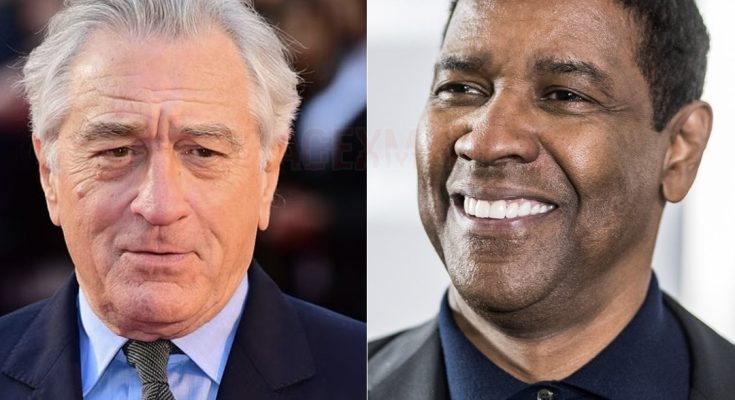
In a recent turn of events that has left Hollywood in a state of shock and contemplation, Denzel Washington, a figure synonymous with integrity and talent in the film industry, has made headlines by rejecting a colossal $100 million offer from Disney. This decision was not driven by scheduling conflicts or artistic differences, but by a personal stance against co-starring with the legendary Robert De Niro, whom Washington described as a “creepy old man.”
This revelation first emerged from the notorious gossip blog “Hollywood Whispers” and has since been corroborated by various sources close to Washington. The proposed project, veiled in secrecy but speculated to be a dramatic thriller, would have marked the first cinematic union of these two titans of the screen. However, Washington’s unexpected refusal, rooted in his personal perceptions of De Niro, has thrown a wrench into what many anticipated to be a landmark collaboration in film history.
Washington’s candid reasoning, as reported in “Celebrity Scoop” magazine, reflects a profound sense of personal ethics that overshadows the lure of fame and fortune. His refusal to collaborate with De Niro, whom he respects professionally, underscores a complex dilemma between professional admiration and personal discomfort. Washington’s choice highlights a rare instance where moral considerations take precedence over a potentially career-defining opportunity.
The reaction to Washington’s decision has been polarizing. Admirers praise his unwavering principles, while critics are baffled by his rejection of such a lucrative and high-profile role. This divide underscores the ongoing tension between personal beliefs and professional advancements in Hollywood.
In contrast to the storm surrounding Washington’s statement, De Niro’s response has been characterized by a measured silence. Despite the surprise and disappointment suggested by his close associates, De Niro’s decision to steer clear of a public dispute demonstrates a seasoned restraint, typical of a veteran actor of his stature.
The implications of Washington’s decision extend beyond the potential on-screen chemistry between two cinematic giants. It has ignited a fervent discourse among fans and industry insiders alike. The debate spans from disappointment over the loss of what could have been a memorable film to a broader discussion on the interplay of ethics and entertainment.
Disney’s response to this development has been notably reserved. The studio’s silence on Washington’s exit and the future of the project fuels speculation about potential replacements. This situation poses a significant challenge: finding an actor of equivalent caliber and appeal to fill the void left by Washington.
Washington’s unflappable demeanor in the face of this controversy speaks volumes about his character. His straightforwardness in addressing the matter suggests a man who values his principles above fame and financial gain. This incident not only casts a spotlight on Washington’s personal ethos but also prompts a broader reflection on the dynamics of power, morality, and choice in the entertainment industry.
In sum, while the film world may mourn the loss of what could have been an iconic pairing, this episode serves as a poignant reminder of the intricate and often challenging nature of artistic collaboration and celebrity in Hollywood. Washington’s decision, whether seen as a commendable stand for personal values or a missed opportunity, undeniably adds a fascinating layer to his legacy and sparks a conversation that will resonate in the industry for years to come.


